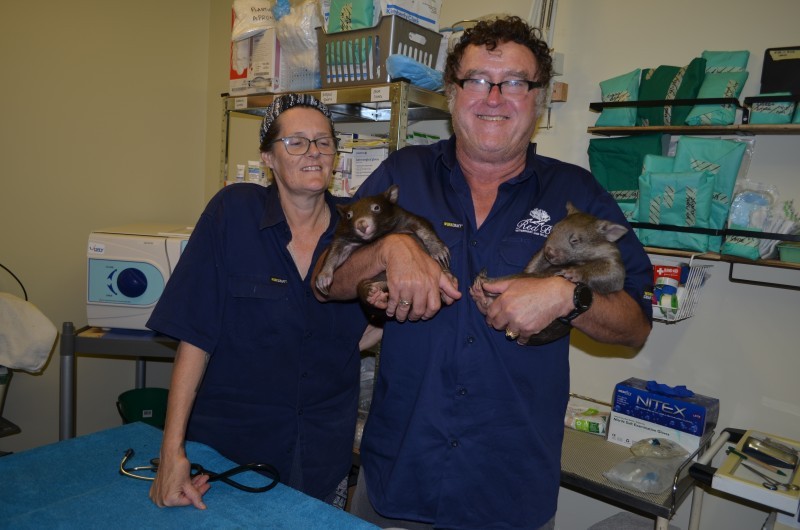Red Box Wildlife Shelter veterinarian Dr Mark Sayer will visit the United States this month to be the local shelter’s ambassador at the 2024 Education and Conservation Society of Macropodidae Conference.
Dr Sayer will be speaking about the magnificent macropod and his work treating wildlife at Red Box.
The veterinarian and his wife Jaimie have been wildlife carers, specialising in kangaroos, for more than a decade.
Dr Sayer visits Red Box once a month to tend to sick and injured macropods and marsupials at the free clinic.
He said he might be considered a bit old school but in his day it was just a given that a vet would care for any injured wildlife brought to them.
“It was expected and a privilege to care for our wildlife,” he said.
But a shortfall of about 1200 vets across the country has meant many clinics are under intense pressure caring for domestic pets and are being forced to turn wildlife away.
Dr Sayer said he would love to see another local vet join their ranks.
“We could really do with another vet to meet the current demand. I understand that not everyone has experience working with macropods or marsupials, but I would be more than willing to train them. They can sit in on consults and procedures and learn from me,” he said.
Dr Mark said while many vets would advise community members that an injured kangaroo should be euthanised, this was rarely the case.
“Most breaks and injuries can be repaired and the kangaroo or wallaby rehabilitated,” he said.
The vet said that was where the hard work really began.
“Our carers have the toughest job of all. It’s a 24-7 job with four to six feeds a day. It is like caring for a newborn.”
The veterinarian said his appearance at the US conference would not be possible without the unwavering commitment of Red Box Wildlife Shelter founders Nikki and Scott Medwell and their wonderful volunteers.
“Nikki has worked hard to set up the free clinic and also to get me to the conference to continue to promote awareness and education around the care of macropods,” Dr Sayer said.

“Nikki set up the clinic from the ground up and has raised funds through generous donations from the community to purchase medicine and supplies.
“I also donate around $30,000 in orthopaedic materials each year and my time. Plates and screws for one operation can cost anywhere around $800 alone,” he said.
Dr Sayer said the plight of kangaroos was in stark contrast between Australia and America.
“In Australia kangaroos cannot be kept as pets and injured wildlife must be able to be rehabilitated or ethuanised. In the US kangaroos are only reared in captivity, many as pets or in zoos, animal farms or touring wildlife experiences. A joey can sell for as much as $9500US,” he said.
Dr Sayer hopes to foster better understanding of macropods, their nutrition and care requirements.
“Many frown on the treatment of kangaroos in America, but overseas many are also shocked and appalled by the harvesting of kangaroos here in Australia. In fact, some businesses such as Nike and Puma have banned the use of kangaroo skin in their products and other hig- profile businesses are under pressure to do so,” he said.
Dr Sayer welcomed Mount Alexander Shire Council’s decision to seek a ban on commercial kangaroo shooting in the shire.
“Kangaroos are intelligent creatures. Of course they are going to choose the nutrient-rich agricultural pasture over native grasses and I can understand farmers wanting to protect their crops. However, I can’t support the commercial kangaroo industry and the treatment of our roos, in particular joeys,” he said.
Dr Sayer said the numbers just didn’t add up.
“The latest figures estimate kangaroo numbers are down by 20 per cent. Kangaroos only produce one young a year in the right conditions.”
Any vets who would like to get involved in the clinic are urged to email elroos3448@gmail.com






